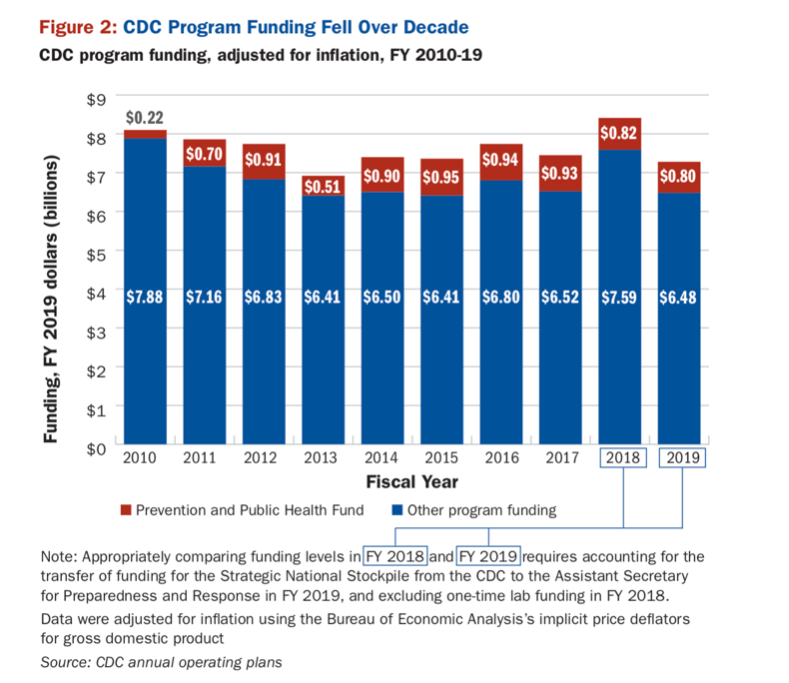There has been no Republican war against public health spending either in North Carolina or in Washington, DC. Reposting here a portion of my comments from March 16 to help set the record straight
A progressive advocacy group recently claimed that public health funding was cut by 28% because of tax reforms. This claim combines bad math, bad history, and a bad understanding of state government. Budgeted expenditures for the Division of Public Health in the Department of Health and Human Services dropped 17%, from $189.0 million to $156.6 million between FY 2008-09 and FY 2010-11, both periods when Democrats remained in control of the General Assembly and well before any tax cuts. This spending covers programs for food assistance, sickle cell anemia, and HIV/AIDS with programs related to the coronavirus outbreak. The budget bill for FY 2018-19 appropriated $156.7 million.
Looking closely at the segment of public health spending for pandemics (i.e., public health preparedness and response, capacity building, the chief medical examiner, state health lab, and communicable disease surveillance), appropriations have grown from $24.9 million in FY 2014-15, the first full year of tax reform, to $34.6 million between in the current 2019-20 fiscal year, according to the OSBM’s Open Budget website. Federal funds have increased from $35.8 million to $59.1 million, bringing total expenditures that could help with coronavirus to $93.7 million, a 54% increase from the $60.7 million spent five years ago. Higher spending is not necessarily better spending, but these increases belie the claim that the General Assembly has prioritized tax cuts over public health.
At the federal level, Trust for America’s Health shows that federal spending on the Centers for Disease Control and Prevention (CDC) has been largely consistent since 2013. Funding for state and local preparedness and response has been stable since 2011. Again, the level of spending is not indicative of wise use, but the CDC has not been gutted by the Trump administration. Its fumbled response was not likely due to a lack of funding, again despite claims to the contrary.



